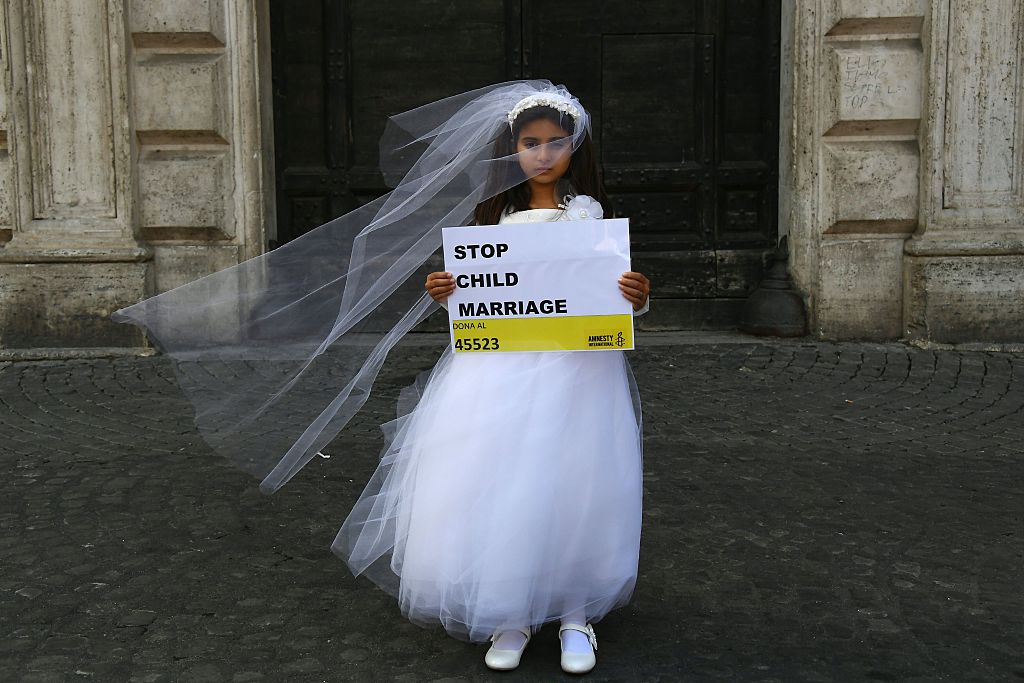By now you’ve probably heard of Marie Laguerre. The 22-year-old student was punched in the face last week by a passer-by, a sickening attack that was caught on CCTV and has since gone viral. It’s caused uproar around the world, and is being seen as evidence of the physical and verbal abuse with which Frenchwomen have to contend all too often.
Laguerre was struck because she gave short shrift to the obscene comments of a man who crossed her path on a busy Parisian street. Marlène Schiappa, France’s gender equality minister, described the incident as an assault on the “freedom of women”; Schiappa deserves much praise for her dominant role in driving through a bill that was passed by parliament on Wednesday, and which will introduce fines of up to €750 for sexual harassment in public. “The political response must be strong and it is, because for the first time in France we will fine those responsible for street harassment,” said Schiappa.
Which makes Schiappa’s silence on another case of a Frenchwoman suffering at the hands of male aggressors all the more disappointing. The story, like that of Laguerre, broke last week but came and went in a couple of days; politicians, opinion formers and activists in France and across the world barely passed comment.
It concerned a 29-year-old Frenchwoman called Mounia Haddad, who earlier this year rejected her family’s choice of a husband for her in Algeria. She already had a boyfriend, a man she loves and plans to marry, but last month Haddad vanished from the home they shared near Cannes. Tracking her mobile phone signal to her family’s house in Tours, central France, the police and the boyfriend’s family arrived to a hostile reception. Punches were allegedly thrown between the boyfriend and Haddad’s father and then she appeared, begging the police for help.
The father and two uncles will appear in court next month to answer charges of kidnapping and imprisonment, while Haddad’s brother is accused of issuing written death threats. Haddad’s lawyer told reporters that his client’s greatest desire is “to be left to lead the life she chooses”, although he said that she was still worried about her safety. Normally, Haddad’s story might never have made the news because this is not an isolated incident. A report in 2015 stated that as many as 70,000 French girls under the age of 18 have been forced into marriage. Haddad stood out because of who she is: a local councillor for Emmanuel Macron’s La République en Marche party.
Her backstory should be an inspirational example of integration. Haddad is the face of the multi-cultural France that Macron has been championing since his election last year; a country that provides opportunities to everyone regardless of race, religion or colour. According to Haddad’s lawyer her family are “absolutely integrated” into French society and encouraged her throughout her long years of study. But their pride in her professional life doesn’t seem to have extended to her private life. It’s a disturbing story, a reality check to politicians who still blithely believe that Islamic customs can comfortably bed down alongside the West’s.
These can’t be dismissed simply as ‘family issues’, these are cultural battles that the West must win or else millions of women face a bleak future. The signs aren’t encouraging. Ayaan Hirsi Ali fled to Holland from Somalia to avoid a forced marriage in 1992 and spent more than a decade highlighting the issue in her adopted country, only to be hounded out by liberals in 2006 because her comments about Islam made them uncomfortable.
In 2015, the BBC reported that more than 11,000 cases of “so-called honour crimes” were recorded by UK police forces from 2010-2014, including forced marriage and female genital mutilation. Nonetheless, commander Mark Chishty, in charge of police policy on the issue, was upbeat in telling the BBC: “I think we’re in a better place because of our training given to all officers….I think if we work hard enough at it together, we can start to eradicate this.”
Yet last November, the director of a women’s rights charity told the Guardian that only five per cent of reported cases were referred to the Crown Prosecution Service. “More victims of ‘honour’ based violence are coming forward to the police than ever before,” explained Diana Nammi. “But worryingly the evidence suggest those seeking justice are being failed by the system.”
In yesterday’s Times, a report claimed that British teenagers from Pakistan, India, Bangladesh and the UAE are “being forced to marry abroad and are raped and impregnated”. Yet the Home Office reportedly continues to hand visas to the men responsible “for fear of being called racist”. Similar apprehension has led to the rape and abuse of hundreds of girls across Britain by predominantly Muslim gangs. One politician did speak out: Labour’s Sarah Champion, but that proved a bad career move on her part.
It’s safer, therefore, if you’re a politician or a police chief, to go after the easy targets and let the Islamic community be. In May this year, Canard Enchainé , France’s equivalent of Private Eye, reported a visit that Marlène Schiappa made to Trappes, a town south of Paris with a large population of Muslim residents. During a heavily-policed walkabout, Schippa stopped outside a cafe and suggested they go inside for a coffee. Her escort, a local politician, demurred; it was a traditional Muslim cafe and women were not welcome. Wishing to “avoid an incident”, they moved on, which is what the West has been doing for years. In doing so they’ve abandoned countless young women to lives of misery and servitude; but their welfare is secondary to the dogma of celebrating diversity.







Comments